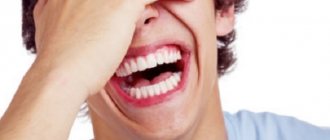: Reading time:
Why does a child bite his nails, pull out his hair, scratch himself, or perform other obsessive actions - says child psychologist Victoria Melikhova.
He bites his nails until they bleed, pulls out the hair on his head, scratches his skin, and performs some strange rituals without which he cannot go to bed. What is behind obsessive actions in children from a psychological point of view?
The easiest way to understand the meaning of these actions is through the example of a ritual. A child needs to wash his hands with soap five times before going to play or having lunch. What will happen if he doesn't do this? If a child does not wash their hands thoroughly enough, germs will remain and get into their mouth, causing a stomach ache... Do you know the horror story? Washing hands in an exaggerated manner protects the child from a sore stomach and from anxiety that the stomach may get sick.
The main function of neurotic obsessive actions comes out - protective. But protection from what? It turns out that from anxiety. If I perform a certain action, no undesirable consequences will occur.
The main function of neurotic obsessive actions comes out - protective. But protection from what? It turns out that from anxiety.
The student tries to do everything five times to get an A. This ritual reduces the anxiety of getting a bad grade.
Not everything can be controlled, even by adults. Then the desire for control shifts to obsessive actions that have nothing to do with desire. I can wash my hands five times and then I'll get an A. I can kiss my mother goodnight three times without fail, and then she will live happily ever after. I can create the illusion of control over something I essentially cannot control. And then my anxiety decreases. The fear of failure and the fear of death are reduced.
The child bites his fingernails, pulls out his hair - thanks to them, the child copes with anxiety, with the affects that overwhelm him. And it’s good that the psyche copes at least this way.
The task of parents and psychologists is to understand what lies behind the obsessive action, and how this feeling, this emotion, this desire can be expressed in a more rational way.
Let's look at the main reasons why a child bites his nails.
Causes
The habit appears in childhood.
A person carries it with him throughout his life. During times of relative psychological calm, it does not manifest itself in any way, but during stress, the hands immediately reach for the mouth. The psychosomatics of onychophagia lies only in psychological problems.
Psychological reasons
When a baby experiences psychological discomfort, he calms down in this way. At the same time, the feeling of security remains for life and is recorded in the subcortex.
Growing up, an adult unconsciously puts his hands in his mouth as soon as he experiences psychological discomfort. At this time, self-control, help from loved ones, and a conversation with a psychologist will help. It is necessary to understand the essence of the problem and work together to find a solution.
Other causes of onychophagia:
- anxiety;
- guilt;
- obsessive-compulsive disorder;
- trouble in personal space;
- problems communicating with others;
- adopting other people's habits.
Psychology these days gives answers on how to get rid of a habit that is harmful and unaesthetic, unpleasant for others.
Nerves
Prolonged nervous tension provokes the manifestation of a forgotten bad habit. Particularly sensitive people, unstable in the face of stress, thus build a psychological defense mechanism and calm down during periods of emotional overstrain.
The process distracts a person from the current situation, helps to reflect on it, calm down, think and find the right solution . But not everyone around can understand and accept an adult who bites his nails with pleasure.
Habit
A bad habit does not appear overnight. This is a long process that develops throughout life. Over time, this becomes a reflex - a reaction to mental stimuli.
In childhood, the child is controlled by his parents; later, as he grows up, he must learn self-control. It is important to get rid of the habit as early as possible so as not to look funny and ridiculous.
An adult grows up with this habit, it becomes part of him, and it is almost impossible to eradicate it.
When the problem is serious, where to turn?
A psychologist, neurologist, physiotherapist, and in rare cases a psychiatrist will help you cope with addiction to a bad habit.
It is necessary to explain to the doctor what causes the manifestation of this condition, when it began, and during what periods it manifests itself.
Together with a specialist, the causes of the disease and ways to eliminate it will be found..
A dermatologist can help treat damaged nails. Together with psychological correction, such treatment gives positive results.
In men and women
Women have a more vulnerable nervous system, and they develop bad habits more often than men.
An adult man with a strong psyche is able to control his emotional state. But even the strong half of humanity has not escaped this psychological illness.
According to statistics, onychophagia affects approximately 65% of women and only 35% of men.
If an adult man bites his nails, what does it mean?
If a man experiences obsessive anxiety and excitement, his hands themselves reach into his mouth. This does not always apply to particularly impressionable people.
A strange habit may be a sign of a perfectionist - a person who is used to doing everything perfectly, always, controlling the situation, and not giving himself any concessions.
It’s not always possible to do a job “with five marks.”
In some situations this is simply not possible .
That’s when yesterday’s schoolchild, an excellent student, experiences severe psychological discomfort and remembers childhood, long-forgotten bad habits. By biting his nails, an adult man plunges into the comfort zone that he found himself in as a child, performing similar actions.
Diagnosis of onychophagia
The diagnostic stage includes:
- Survey, clinical conversation. It is important for the doctor to understand what caused the pathology.
- Inspection. In case of advanced disease, when there are wounds on the fingers, the nails are greatly modified, a consultation with a dermatologist is required. The specialist will select drugs that eliminate infectious and inflammatory phenomena and accelerate regenerative processes.
- Laboratory research. In case of progressive inflammation or suspicion of a viral or fungal disease, skin samples are taken and the composition of the exudate discharged from under the nails is analyzed.
- Psychodiagnostics. The psychiatrist conducts tests that allow us to study different aspects of the client’s personal and emotional sphere and assess the level of his neuroticism.
Danger of disorder
First of all, the habit of biting nails is a sign of excessive emotional tension and stress, the fact that a person cannot deal with the situation in which he finds himself. This means that a person needs to be helped to change something in his life that causes such a psychological reaction. If the condition is ignored, especially if a child suffers from it, it can intensify and take root deeper into his psyche. In addition, onychophagia can lead to infectious and bacterial infections, as well as the development of parasites, because a huge number of different microorganisms accumulate under the nail plate, which enter the gastrointestinal tract through the mouth. Nail biting leads to mechanical damage to the skin of the fingers and deformation of the nails, which sometimes causes the development of inflammatory processes.
Dermatophagy
This is a disorder in which a person compulsively bites, chews, chews, or eats their skin (most often on their fingers). Such actions, as with trichotillomania, can be conscious or unconscious.
Most often, patients with this disorder bite the skin around the nails, some on the knuckles, which leads to bleeding, pain and calluses. There are cases when the patient chews the mucous membrane on the inside of the mouth, cheeks or lips, due to which blisters appear inside and outside the mouth. At the same time, blisters can make you want to tear off or bite off the affected skin, which is quite dangerous: infection can get into the wound.
Most often, dermatophagia occurs in children, but sometimes it manifests itself in adulthood and can be associated with increased anxiety in a person or the occurrence of unpleasant premonitions, says Oleg Aizberg.
How a dangerous habit develops
Experts have found that the disease is based on a person’s inability to express their own feelings and emotions. He cannot honestly say what bothers him, what he doesn’t like. Hushing up problems, he bursts out. An internal tension is created that needs to be released. In order to somehow unload, the patient begins to bite and break off his nails.
Essentially, onychophagy is auto-aggression. Psychologists consider this condition to be very insidious. The patient harms himself and does not think about his own well-being. Adults do not know how to cope with stress, and this makes their life difficult and joyless.
The danger also lies in the fact that internal aggression and a tendency to self-blame often result in psychosomatic disorders. We are talking about diseases of internal organs and systems caused by long-lasting psychological discomfort.
What to do if a child bites his nails?
Pay attention to your child's surroundings. As we have already noted, onychophagia develops against the background of any emotional problems that a person is not able to cope with on his own. The source may be hidden at school, among the child's circle of friends, or even within the family itself. It is worth observing your behavior, because it often happens that bad habits and auto-aggression manifest themselves as a reflection of the behavior of their parents, since children tend to copy their authorities. In this case, you need to start working with yourself and with the atmosphere within your family.
If you notice that you also have a habit of biting your nails, then you should think about what exactly prevents you from expressing your negative emotions, why there is a craving for self-destruction. Finding and resolving psychological causes will, of course, lead to getting rid of hygienic and educational problems. If you do not work to eliminate the cause, then there will be a banal change from onychophagia to some other type of auto-aggressive behavior.
Today, almost all psychological centers are working to rid patients of auto-aggressive disorders.
Seek advice from a specialist, bring your child and they will certainly advise you on the most effective method of getting rid of an unaesthetic and harmful habit. In contact with
How does the violation manifest itself?
It is not difficult to recognize the disorder - the patient has changed and bitten nail plates. It's always noticeable. Their edges are uneven and flaking. On the sides of the nails there are burrs, small wounds, and tears. The nail folds are often inflamed.
If the disease occurred a long time ago and no measures are taken to eliminate it, the nails thicken. Lumps and grooves and deep transverse/longitudinal stripes form on their surface. If a person bites the plate too deeply and an infection gets into the wound, pain, swelling, and itching occur. If a fungal infection occurs, the color of the nails changes - it becomes yellow, brown, orange, deep white or greenish.








